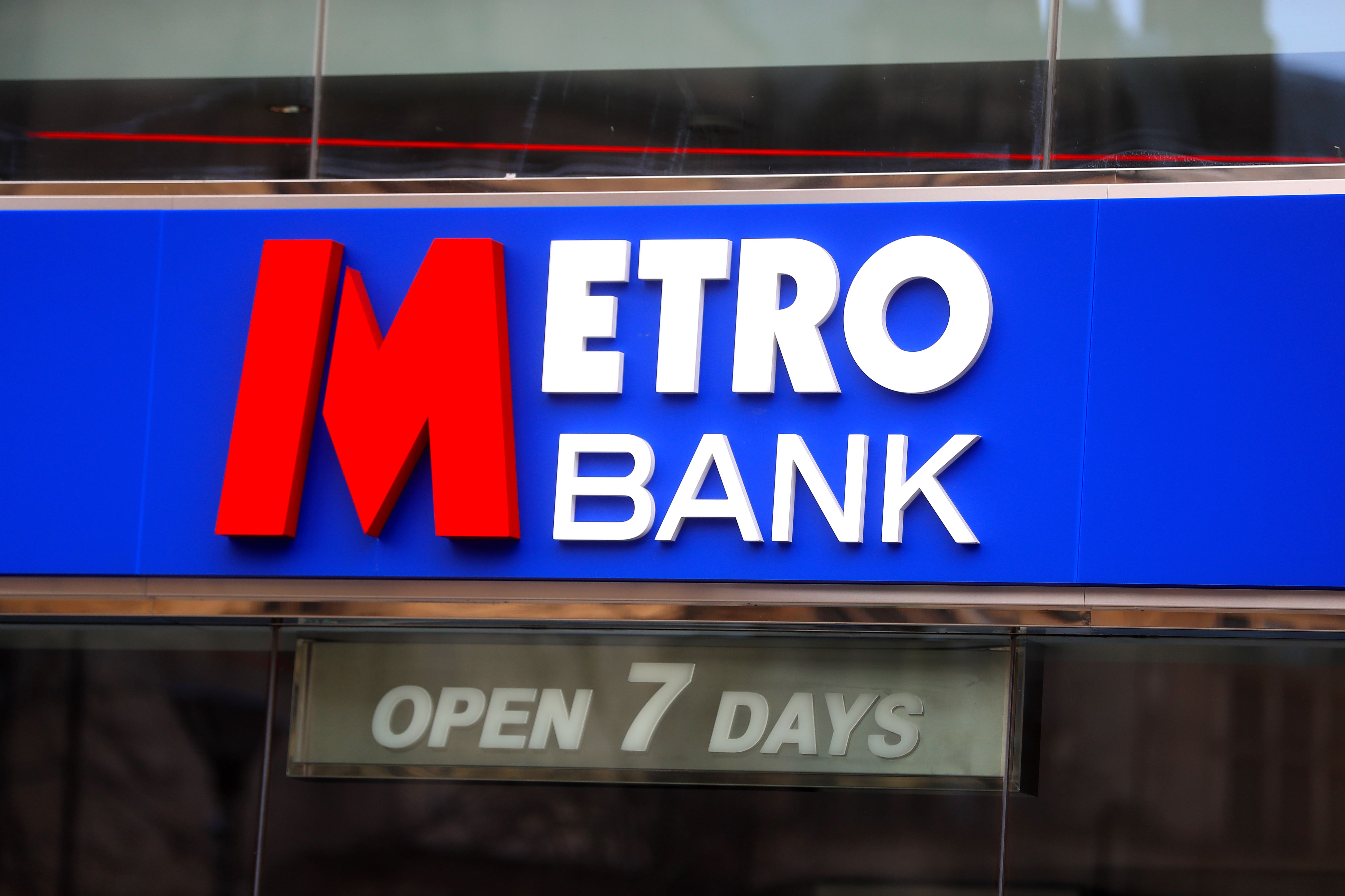Metro Bank shares dive as investors anxious over possible fundraise
The firm’s share price tumbled by more than 25%.

Shares in high street lender Metro Bank plunged to new lows as it revealed it is mulling over fundraising or selling off assets in a bid to shore up cash.
The bank is reportedly looking to raise around £600 million in capital to help it refinance debts.
It said it was looking at a range of options including a combination of equity and debt, as well as possible asset sales.
But it stressed that “no decision has been made on whether to proceed with any of these options”.
The bank added that it has reported underlying profitability for the past three quarters, and told investors it “continues to be well positioned for future growth”.
It is due to refinance around £350 million of debt by October 2025.
The firm’s share price tumbled by around 30% during the day on Thursday, hitting lows of around 34p per share.
It came amid reports it is in talks with investors to raise around £250 million in equity funding and £350 million in debt.
A possible £100 million share sale is also said to be among plans being mooted.
Supporting a further capital raise for this struggling bank would be akin to throwing good money after bad, in our view
Metro Bank’s chairman Robert Sharpe met with City regulators on Thursday. But the bank said it was a long-standing and pre-arranged meeting, and chief executive Daniel Frumkin was not present.
Metro Bank earlier this year said it had worked on “fixing issues of the past while positioning itself for the future” as it revealed it had made a profit over the first half of the year.
The high-street chain, which has 76 branches known as “stores”, cheered completing a turnaround plan at the end of 2022 after cutting costs and winning new customers.
It is one of the UK’s top 10 banks with around 2.7 million customers, after being the first new lender to launch high street branches in 2010 in more than 100 years.
Gary Greenwood, an equity research analyst for Shore Capital Markets, suggested that the business could struggle to find backers for a potential fundraise.
He said: “Metro Bank has been struggling for a number of years to establish itself as a profitable and self-sustaining bank.
“Supporting a further capital raise for this struggling bank would be akin to throwing good money after bad, in our view, as it has already had enough time and opportunity to sort itself out and has been unable to do so.”
The bank has over-costed in recent years having put money into opening expensive branches, Mr Greenwood suggested.
He also flagged that it is narrowly operating within its minimum capital requirements, which could have helped prompt a possible fundraising drive.
Metro Bank has plans to expand its store network in the North of England and wants to open 11 more branches by the end of 2025.
Chief executive Daniel Frumkin said that “whilst competitors continue to shrink their branch numbers and reduce hours, we are continuing to see the benefits of being rooted in the communities we serve”.
In 2019, customers formed substantial queues outside some of its branches after rumours circulated on social media questioning its financial stability.
It was forced to dispel the rumours and proceeded to raise more than £350 million from a fundraising call to strengthen its balance sheet.
The firm was fined nearly £5.4 million in 2021 by the PRA over failures related to reporting its capital position and governance and controls.
Last month, it suffered another setback when the PRA said it would not be giving long-awaited approval for it to use internal ratings-based models for residential mortgages this year.
Bookmark popover
Removed from bookmarks